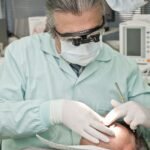Life changes dramatically when basic functions like eating, speaking, and smiling become difficult or painful. Whether due to injury, disease, or congenital conditions, these challenges can significantly impact your quality of life and self-confidence. Fortunately, modern oral surgery offers remarkable solutions to restore these essential functions.
Understanding how oral surgery can address various conditions helps patients make informed decisions about their treatment options. From reconstructive procedures to tooth replacement, these interventions can transform lives by returning fundamental abilities that many of us take for granted.
Understanding Functional Oral Health
Your mouth serves multiple critical functions beyond just holding your teeth. The complex system of bones, muscles, nerves, and soft tissues works together to enable proper chewing, clear speech, and natural facial expressions. When any component of this system becomes compromised, it can create a cascade of problems affecting nutrition, communication, and emotional well-being.
Eating difficulties may arise from missing teeth, jaw misalignment, or damaged oral structures. These issues can force people to avoid certain foods, leading to nutritional deficiencies and digestive problems. Similarly, speech impediments caused by oral health issues can affect personal and professional relationships, while changes in facial appearance can impact self-esteem and social interactions.
Common Conditions Requiring Surgical Intervention
Several conditions may necessitate oral surgery to restore proper function. Severe tooth loss, whether from decay, trauma, or periodontal disease, can make chewing difficult and affect speech clarity. Jaw disorders, including temporomandibular joint (TMJ) problems, can cause pain and limit mouth opening, making eating and speaking uncomfortable.
Facial trauma from accidents or sports injuries often requires surgical reconstruction to restore both function and appearance. Congenital conditions like cleft lip and palate affect speech development and eating from birth, requiring specialized surgical treatment. Additionally, oral cancers may necessitate removal of tissue, followed by reconstructive surgery to maintain essential functions.
Birth defects, infections, and degenerative diseases can also compromise oral function over time. These conditions often require a multidisciplinary approach involving various specialists to achieve optimal outcomes.
Surgical Solutions for Eating Difficulties
When tooth loss makes chewing difficult, dental implants provide a permanent solution that closely mimics natural teeth. Unlike removable dentures, implants integrate with the jawbone, providing stable support for chewing even tough foods. The process involves placing titanium posts into the jawbone, which then support artificial teeth designed to match your natural bite.
For patients with significant bone loss, bone grafting procedures can rebuild the foundation necessary for successful implant placement. These procedures use bone from the patient’s own body or synthetic materials to create a strong base for dental restoration.
Corrective jaw surgery, or orthognathic surgery, addresses severe bite problems that interfere with proper chewing. By repositioning the upper or lower jaw, surgeons can restore proper alignment and improve chewing efficiency. This type of surgery often works in conjunction with orthodontic treatment to achieve optimal results.
Restoring Clear Speech
Speech problems related to oral health issues require careful evaluation and treatment planning. Missing front teeth significantly affect pronunciation of certain sounds, while jaw misalignment can cause lisping or difficulty with specific consonants and vowels.
Reconstructive surgery can address structural problems that interfere with speech. For example, repairing a cleft palate creates the proper separation between the mouth and nasal cavity, allowing for clearer speech production. Similarly, correcting jaw position can improve tongue placement and airflow patterns essential for clear articulation.
Dental restoration plays a crucial role in speech improvement. Replacing missing teeth with implants or bridges restores the proper surfaces needed for tongue placement during speech. An experienced oral surgeon in West Jordan can evaluate how different treatment options will affect your speech patterns and recommend the best approach for your specific needs.
Enhancing Your Smile and Confidence
The psychological impact of oral health problems extends far beyond physical discomfort. Many patients avoid smiling, laughing, or speaking in public due to embarrassment about their appearance. Surgical reconstruction can dramatically improve both function and aesthetics, restoring confidence in social and professional situations.
Facial reconstruction following trauma or cancer treatment focuses on recreating natural facial contours and expressions. Advanced techniques allow surgeons to rebuild complex structures while maintaining facial symmetry and movement. These procedures often involve multiple stages but can achieve remarkable results.
Cosmetic improvements often accompany functional restoration. For example, dental implants not only restore chewing ability but also support facial tissues, preventing the sunken appearance that often develops after tooth loss. Similarly, jaw surgery can improve facial balance while correcting bite problems.
The Treatment Journey
Restoring oral function typically involves careful planning and coordination between different specialists. Initial evaluation includes comprehensive examination, imaging studies, and discussion of treatment goals. The oral surgeon in West Jordan will work with your general dentist, orthodontist, and other specialists as needed to develop an integrated treatment plan.
Treatment often occurs in phases, particularly for complex cases. Some procedures may require healing time between stages, while others can be combined for efficiency. Throughout the process, maintaining realistic expectations and following post-operative care instructions are essential for achieving optimal results.
Recovery varies depending on the specific procedures performed, but most patients experience significant improvement in function and quality of life. Modern techniques and materials have made these surgeries more predictable and comfortable than ever before.
Reclaiming Your Quality of Life
Oral surgery offers hope for patients struggling with eating, speaking, or smiling difficulties. These procedures can restore not just physical function but also confidence and quality of life. With proper evaluation and treatment planning, most patients can expect significant improvement in their ability to enjoy food, communicate clearly, and smile with confidence.
If you’re experiencing difficulties with eating, speaking, or smiling due to oral health issues, consulting with a qualified oral surgeon can help you understand your options. Modern surgical techniques continue to evolve, offering increasingly effective solutions for restoring the essential functions that contribute to a fulfilling life.








